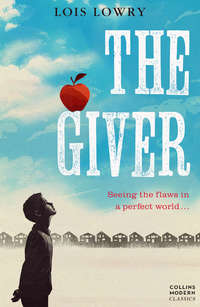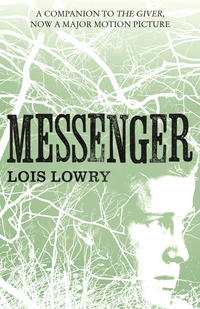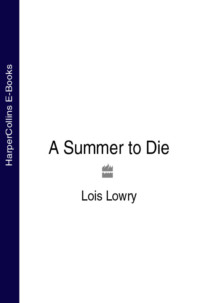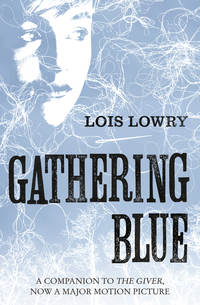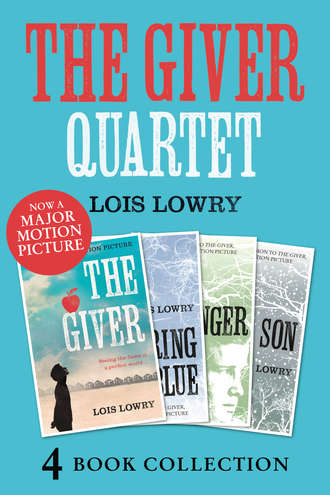
Полная версия
The Giver, Gathering Blue, Messenger, Son
“Because it’s a memory from the time when colour was.”
“It was so – oh, I wish language were more precise! The red was so beautiful!”
The Giver nodded. “It is.”
“Do you see it all the time?”
“I see all of them. All the colours.”
“Will I?”
“Of course. When you receive the memories. You have the capacity to see beyond. You’ll gain wisdom, then, along with colours. And lots more.”
Jonas wasn’t interested, just then, in wisdom. It was the colours that fascinated him. “Why can’t everyone see them? Why did colours disappear?”
The Giver shrugged. “Our people made that choice, the choice to go to Sameness. Before my time, before the previous time, back and back and back. We relinquished colour when we relinquished sunshine and did away with differences.” He thought for a moment. “We gained control of many things. But we had to let go of others.”
“We shouldn’t have!” Jonas said fiercely.
The Giver looked startled at the certainty of Jonas’s reaction. Then he smiled wryly. “You’ve come very quickly to that conclusion,” he said. “It took me many years. Maybe your wisdom will come much more quickly than mine.”
He glanced at the wall clock. “Lie back down, now. We have so much to do.”
“Giver,” Jonas asked as he arranged himself again on the bed, “how did it happen to you when you were becoming the Receiver? You said that the seeing-beyond happened to you, but not the same way.”
The hands came to his back. “Another day,” the Giver said gently. “I’ll tell you another day. Now we must work. And I’ve thought of a way to help you with the concept of colour.
“Close your eyes and be still, now. I’m going to give you a memory of a rainbow.”
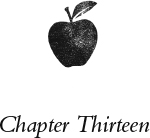
DAYS WENT BY, and weeks. Jonas learned, through the memories, the names of colours; and now he began to see them all, in his ordinary life (though he knew it was ordinary no longer, and would never be again). But they didn’t last. There would be a glimpse of green – the landscaped lawn around the Central Plaza; a bush on the riverbank. The bright orange of pumpkins being trucked in from the agricultural fields beyond the community boundary – seen in an instant, the flash of brilliant colour, but gone again, returning to their flat and hueless shade.
The Giver told him that it would be a very long time before he had the colours to keep.
“But I want them!” Jonas said angrily. “It isn’t fair that nothing has colour!”
“Not fair?” The Giver looked at Jonas curiously. “Explain what you mean.”
“Well …” Jonas had to stop and think it through. “If everything’s the same, then there aren’t any choices! I want to wake up in the morning and decide things! A blue tunic, or a red one?”
He looked down at himself, at the colourless fabric of his clothing. “But it’s all the same, always.”
Then he laughed a little. “I know it’s not important, what you wear. It doesn’t matter. But—”
“It’s the choosing that’s important, isn’t it?” The Giver asked him.
Jonas nodded. “My little brother—” he began, and then corrected himself. “No, that’s inaccurate. He’s not my brother, not really. But this newchild that my family takes care of – his name’s Gabriel?”
“Yes, I know about Gabriel.”
“Well, he’s right at the age where he’s learning so much. He grabs toys when we hold them in front of him – my father says he’s learning small-muscle control. And he’s really cute.”
The Giver nodded.
“But now that I can see colours, at least sometimes, I was just thinking: what if we could hold up things that were bright red, or bright yellow, and he could choose? Instead of the Sameness.”
“He might make wrong choices.”
“Oh.” Jonas was silent for a minute. “Oh, I see what you mean. It wouldn’t matter for a newchild’s toy. But later it does matter, doesn’t it? We don’t dare to let people make choices of their own.”
“Not safe?” The Giver suggested.
“Definitely not safe,” Jonas said with certainty. “What if they were allowed to choose their own mate? And chose wrong?
“Or what if,” he went on, almost laughing at the absurdity, “they chose their own jobs?”
“Frightening, isn’t it?” The Giver said.
Jonas chuckled. “Very frightening. I can’t even imagine it. We really have to protect people from wrong choices.”
“It’s safer.”
“Yes,” Jonas agreed. “Much safer.”
But when the conversation turned to other things, Jonas was left, still, with a feeling of frustration that he didn’t understand.
He found that he was often angry, now: irrationally angry at his groupmates, that they were satisfied with their lives which had none of the vibrance his own was taking on. And he was angry at himself, that he could not change that for them.
He tried. Without asking permission from the Giver, because he feared – or knew – that it would be denied, he tried to give his new awareness to his friends.
“Asher,” Jonas said one morning, “look at those flowers very carefully.” They were standing beside a bed of geraniums planted near the Hall of Open Records. He put his hands on Asher’s shoulders, and concentrated on the red of the petals, trying to hold it as long as he could, and trying at the same time to transmit the awareness of red to his friend.
“What’s the matter?” Asher asked uneasily. “Is something wrong?” He moved away from Jonas’s hands. It was extremely rude for one citizen to touch another outside of family units.
“No, nothing. I thought for a minute that they were wilting, and we should let the Gardening Crew know they needed more watering.” Jonas sighed, and turned away.
One evening he came home from his training weighted with new knowledge. The Giver had chosen a startling and disturbing memory that day. Under the touch of his hands, Jonas had found himself suddenly in a place that was completely alien: hot and windswept under a vast blue sky. There were tufts of sparse grass, a few bushes and rocks, and nearby he could see an area of thicker vegetation: broad, low trees outlined against the sky. He could hear noises: the sharp crack of weapons – he perceived the word guns – and then shouts, and an immense crashing thud as something fell, tearing branches from the trees.
He heard voices calling to one another. Peering from the place where he stood hidden behind some shrubbery, he was reminded of what the Giver had told him, that there had been a time when flesh had different colours. Two of these men had dark brown skin; the others were light. Going closer, he watched them hack the tusks from a motionless elephant on the ground and haul them away, spattered with blood. He felt himself overwhelmed with a new perception of the colour he knew as red.
Then the men were gone, speeding towards the horizon in a vehicle that spat pebbles from its whirling tyres. One hit his forehead and stung him there. But the memory continued, though Jonas ached now for it to end.
Now he saw another elephant emerge from the place where it had stood hidden in the trees. Very slowly it walked to the mutilated body and looked down. With its sinuous trunk it stroked the huge corpse; then it reached up, broke some leafy branches with a snap, and draped them over the mass of torn thick flesh.
Finally it tilted its massive head, raised its trunk, and roared into the empty landscape. Jonas had never heard such a sound. It was a sound of rage and grief and it seemed never to end.
He could still hear it when he opened his eyes and lay anguished on the bed where he received the memories. It continued to roar into his consciousness as he pedalled slowly home.
“Lily,” he asked that evening when his sister took her comfort object, the stuffed elephant, from the shelf, “did you know that once there really were elephants? Live ones?”
She glanced down at the ragged comfort object and grinned. “Right,” she said sceptically. “Sure, Jonas.”
Jonas went and sat beside them while his father untied Lily’s hair ribbons and combed her hair. He placed one hand on each of their shoulders. With all of his being he tried to give each of them a piece of the memory: not of the tortured cry of the elephant, but of the being of the elephant, of the towering, immense creature and the meticulous touch with which it had tended its friend at the end.
But his father had continued to comb Lily’s long hair, and Lily, impatient, had finally wiggled under her brother’s touch. “Jonas,” she said, “you’re hurting me with your hand.”
“I apologise for hurting you, Lily,” Jonas mumbled, and took his hand away.
“ ’Ccept your apology,” Lily responded indifferently, stroking the lifeless elephant.
“Giver,” Jonas asked once, as they prepared for the day’s work, “don’t you have a spouse? Aren’t you allowed to apply for one?” Although he was exempted from the rules against rudeness, he was aware that this was a rude question. But the Giver had encouraged all of his questions, not seeming to be embarrassed or offended by even the most personal.
The Giver chuckled. “No, there’s no rule against it. And I did have a spouse. You’re forgetting how old I am, Jonas. My former spouse lives now with the Childless Adults.”
“Oh, of course.” Jonas had forgotten the Giver’s obvious age. When adults of the community became older, their lives became different. They were no longer needed to create family units. Jonas’s own parents, when he and Lily were grown, would go to live with the Childless Adults.
“You’ll be able to apply for a spouse, Jonas, if you want to. I’ll warn you, though, that it will be difficult. Your living arrangements will have to be different from those of most family units, because the books are forbidden to citizens. You and I are the only ones with access to the books.”
Jonas glanced around at the astonishing array of volumes. From time to time, now, he could see their colours. With their hours together, his and the Giver’s, consumed by conversation and by the transmission of memories, Jonas had not yet opened any of the books. But he read the titles here and there, and knew that they contained all of the knowledge of centuries, and that one day they would belong to him.
“So if I have a spouse, and maybe children, I will have to hide the books from them?”
The Giver nodded. “I wasn’t permitted to share the books with my spouse, that’s correct. And there are other difficulties, too. You remember the rule that says the new Receiver can’t talk about his training?”
Jonas nodded. Of course he remembered. It had turned out, by far, to be the most frustrating of the rules he was required to obey.
“When you become the official Receiver, when we’re finished here, you’ll be given a whole new set of rules. Those are the rules that I obey. And it won’t surprise you that I am forbidden to talk about my work to anyone except the new Receiver. That’s you, of course.
“So there will be a whole part of your life which you won’t be able to share with a family. It’s hard, Jonas. It was hard for me.
“You do understand, don’t you, that this is my life? The memories?”
Jonas nodded again, but he was puzzled. Didn’t life consist of the things you did each day? There wasn’t anything else, really. “I’ve seen you taking walks,” he said.
The Giver sighed. “I walk. I eat at mealtimes. And when I am called by the Committee of Elders, I appear before them, to give them counsel and advice.”
“Do you advise them often?” Jonas was a little frightened at the thought that one day he would be the one to advise the ruling body.
But the Giver said no. “Rarely. Only when they are faced with something that they have not experienced before. Then they call upon me to use the memories and advise them. But it very seldom happens. Sometimes I wish they’d ask for my wisdom more often – there are so many things I could tell them; things I wish they would change. But they don’t want change. Life here is so orderly, so predictable – so painless. It’s what they’ve chosen.”
“I don’t know why they even need a Receiver, then, if they never call upon him,” Jonas commented.
“They need me. And you,” the Giver said, but didn’t explain. “They were reminded of that ten years ago.”
“What happened ten years ago?” Jonas asked. “Oh, I know. You tried to train a successor and it failed. Why? Why did that remind them?”
The Giver smiled grimly. “When the new Receiver failed, the memories that she had received were released. They didn’t come back to me. They went …”
He paused, and seemed to be struggling with the concept. “I don’t know, exactly. They went to the place where memories once existed before Receivers were created. Somewhere out there…” He gestured vaguely with his arm. “And then the people had access to them. Apparently that’s the way it was, once. Everyone had access to memories.
“It was chaos,” he said. “They really suffered for a while. Finally it subsided as the memories were assimilated. But it certainly made them aware of how they need a Receiver to contain all that pain. And knowledge.”
“But you have to suffer like that all the time,” Jonas pointed out.
The Giver nodded. “And you will. It’s my life. It will be yours.”
Jonas thought about it, about what it would be like for him. “Along with walking and eating and …” He looked around the walls of books. “Reading? That’s it?”
The Giver shook his head. “Those are simply the things that I do. My life is here.”
“In this room?”
The Giver shook his head. He put his hands to his own face, to his chest. “No. Here, in my being. Where the memories are.”
“My Instructors in science and technology have taught us about how the brain works,” Jonas told him eagerly. “It’s full of electrical impulses. It’s like a computer. If you stimulate one part of the brain with an electrode, it—” He stopped talking. He could see an odd look on the Giver’s face.
“They know nothing,” the Giver said bitterly.
Jonas was shocked. Since the first day in the Annexe room, they had together disregarded the rules about rudeness, and Jonas felt comfortable with that now. But this was different, and far beyond rude. This was a terrible accusation. What if someone had heard?
He glanced quickly at the wall speaker, terrified that the Committee might be listening as they could at any time. But, as always during their sessions together, the switch had been turned to OFF.
“Nothing?” Jonas whispered nervously. “But my instructors—”
The Giver flicked his hand as if brushing something aside. “Oh, your instructors are well trained. They know their scientific facts. Everyone is well trained for his job.
“It’s just that … without the memories it’s all meaningless. They gave that burden to me. And to the previous Receiver. And the one before him.”
“And back and back and back,” Jonas said, knowing the phrase that always came.
The Giver smiled, though his smile was oddly harsh. “That’s right. And next it will be you. A great honour.”
“Yes, sir. They told me that at the Ceremony. The very highest honour.”
Some afternoons the Giver sent him away without training. Jonas knew, on days when he arrived to find the Giver hunched over, rocking his body slightly back and forth, his face pale, that he would be sent away.
“Go,” the Giver would tell him tensely. “I’m in pain today. Come back tomorrow.”
On those days, worried and disappointed, Jonas would walk alone beside the river. The paths were empty of people except for the few Delivery Crews and Landscape Workers here and there. Small children were all at the Childcare Centre after school, and the older ones busy with volunteer hours or training.
By himself, he tested his own developing memory. He watched the landscape for glimpses of the green that he knew was embedded in the shrubbery; when it came flickering into his consciousness, he focused upon it, keeping it there, darkening it, holding it in his vision as long as possible until his head hurt and he let it fade away.
He stared at the flat, colourless sky, bringing blue from it, and remembered sunshine until finally, for an instant, he could feel warmth.
He stood at the foot of the bridge that spanned the river, the bridge that citizens were allowed to cross only on official business. Jonas had crossed it on school trips, visiting the outlying communities, and he knew that the land beyond the bridge was much the same, flat and well ordered, with fields for agriculture. The other communities he had seen on visits were essentially the same as his own; the only differences were slightly altered styles of dwellings, slightly different schedules in the schools.
He wondered what lay in the far distance where he had never gone. The land didn’t end beyond those nearby communities. Were there hills Elsewhere? Were there vast wind-torn areas like the place he had seen in memory, the place where the elephant died?
“Giver,” he asked one afternoon following a day when he had been sent away, “what causes you pain?”
When the Giver was silent, Jonas continued. “The Chief Elder told me, at the beginning, that the receiving of memory causes terrible pain. And you described for me that the failure of the last new Receiver released painful memories to the community.
“But I haven’t suffered, Giver. Not really.” Jonas smiled. “Oh, I remember the sunburn you gave me on the very first day. But that wasn’t so terrible. What is it that makes you suffer so much? If you gave some of it to me, maybe your pain would be less.”
The Giver nodded. “Lie down,” he said. “It’s time, I suppose. I can’t shield you forever. You’ll have to take it all on eventually.
“Let me think,” he went on, when Jonas was on the bed, waiting, a little fearful.
“All right,” the Giver said after a moment, “I’ve decided. We’ll start with something familiar. Let’s go once again to a hill, and a sledge.”
He placed his hands on Jonas’s back.
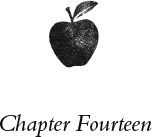
IT WAS MUCH the same, this memory, though the hill seemed to be a different one, steeper, and the snow was not falling as thickly as it had before.
It was colder, also, Jonas perceived. He could see, as he sat waiting at the top of the hill, that the snow beneath the sledge was not thick and soft as it had been before, but hard, and coated with bluish ice.
The sledge moved forward, and Jonas grinned with delight, looking forward to the breathtaking slide down through the invigorating air.
But the runners, this time, couldn’t slice through the frozen expanse as they had on the other, snow-cushioned hill. They skittered sideways and the sledge gathered speed. Jonas pulled at the rope, trying to steer, but the steepness and speed took control from his hands and he was no longer enjoying the feeling of freedom but instead, terrified, was at the mercy of the wild acceleration downwards over the ice.
Sideways, spinning, the sledge hit a bump in the hill and Jonas was jarred loose and thrown violently into the air. He fell with his leg twisted under him, and could hear the crack of bone. His face scraped along jagged edges of ice and when he came, at last, to a stop, he lay shocked and still, feeling nothing at first but fear.
Then, the first wave of pain. He gasped. It was as if a hatchet lay lodged in his leg, slicing through each nerve with a hot blade. In his agony he perceived the word “fire” and felt flames licking at the torn bone and flesh. He tried to move, and could not. The pain grew.
He screamed. There was no answer.
Sobbing, he turned his head and vomited on to the frozen snow. Blood dripped from his face into the vomit.
“Nooooo!” he cried, and the sound disappeared into the empty landscape, into the wind.
Then, suddenly, he was in the Annexe room again, writhing on the bed. His face was wet with tears.
Able to move now, he rocked his own body back and forth, breathing deeply to release the remembered pain.
He sat, and looked at his own leg, where it lay straight on the bed, unbroken. The brutal slice of pain was gone. But the leg ached horribly, still, and his face felt raw.
“May I have relief-of-pain, please?” he begged. It was always provided in his everyday life for the bruises and wounds, for a mashed finger, a stomach ache, a skinned knee from a fall from a bike. There was always a daub of anaesthetic ointment, or a pill; or in severe instances, an injection that brought complete and instantaneous deliverance.
But the Giver said no, and looked away.
Limping, Jonas walked home, pushing his bicycle, that evening. The sunburn pain had been so small, in comparison, and had not stayed with him. But this ache lingered.
It was not unendurable, as the pain on the hill had been. Jonas tried to be brave. He remembered that the Chief Elder had said he was brave.
“Is something wrong, Jonas?” his father asked at the evening meal. “You’re so quiet tonight. Aren’t you feeling well? Would you like some medication?”
But Jonas remembered the rules. No medication for anything related to his training.
And no discussion of his training. At the time for sharing-of-feelings, he simply said that he felt tired, that his school lessons had been unusually demanding that day.
He went to his sleepingroom early, and from behind the closed door he could hear his parents and sister laughing as they gave Gabriel his evening bath.
They have never known pain, he thought. The realisation made him feel desperately lonely, and he rubbed his throbbing leg. He eventually slept. Again and again he dreamed of the anguish and the isolation on the forsaken hill.
The daily training continued, and now it always included pain. The agony of the fractured leg began to seem no more than a mild discomfort as the Giver led Jonas firmly, little by little, into the deep and terrible suffering of the past. Each time, in his kindness, the Giver ended the afternoon with a colour-filled memory of pleasure: a brisk sail on a blue-green lake; a meadow dotted with yellow wildflowers; an orange sunset behind mountains.
It was not enough to assuage the pain that Jonas was beginning, now, to know.
“Why?” Jonas asked him after he had received a tortuous memory in which he had been neglected and unfed; the hunger had caused excruciating spasms in his empty, distended stomach. He lay on the bed, aching. “Why do you and I have to hold these memories?”
“It gives us wisdom,” The Giver replied. “Without wisdom I could not fulfil my function of advising the Committee of Elders when they call upon me.”
“But what wisdom do you get from hunger?” Jonas groaned. His stomach still hurt, though the memory had ended.
“Some years ago,” the Giver told him, “before your birth, a lot of citizens petitioned the Committee of Elders. They wanted to increase the rate of births. They wanted each Birthmother to be assigned four births instead of three, so that the population would increase and there would be more Labourers available.”
Jonas nodded, listening. “That makes sense.”
“The idea was that certain family units could accommodate an additional child.”
Jonas nodded again. “Mine could,” he pointed out. “We have Gabriel this year, and it’s fun, having a third child.”
“The Committee of Elders sought my advice,” the Giver said. “It made sense to them, too, but it was a new idea, and they came to me for wisdom.”
“And you used your memories?”
The Giver said yes. “And the strongest memory that came was hunger. It came from many generations back. Centuries back. The population had got so big that hunger was everywhere. Excruciating hunger and starvation. It was followed by warfare.”



